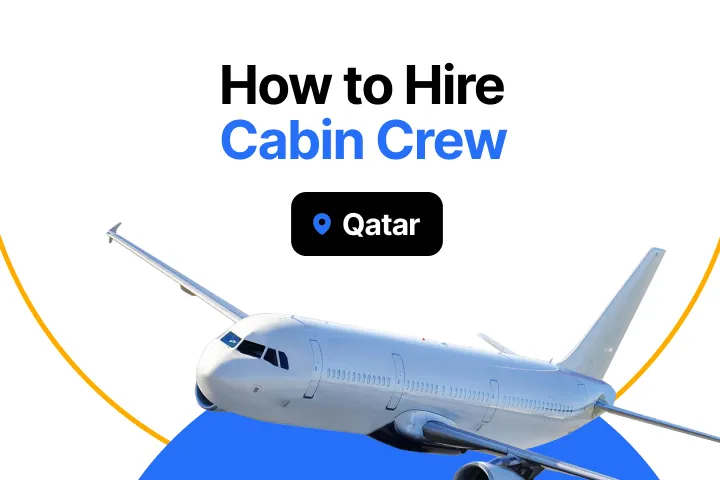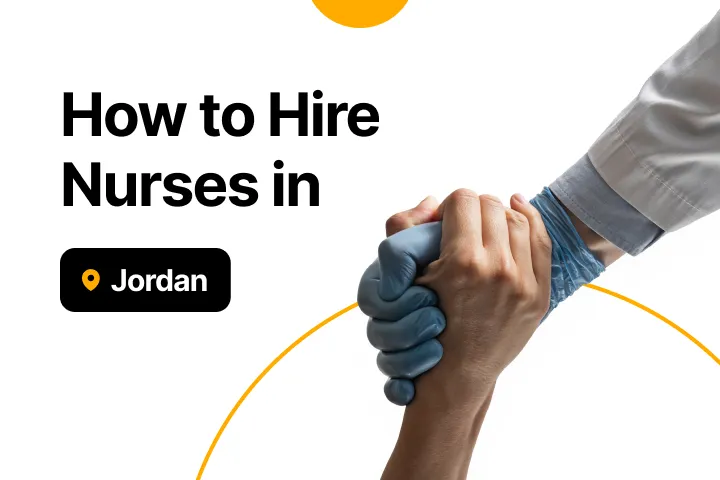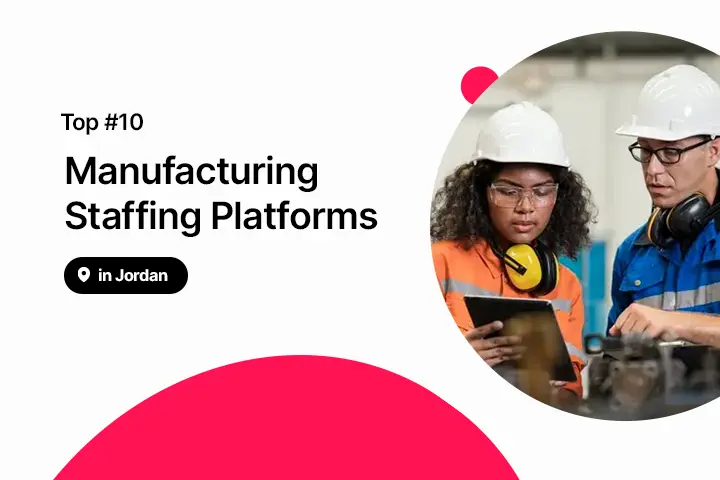The hospitality industry is embracing AI technologies to streamline recruitment processes. In fact, 49% of hospitality companies reported using AI tools to help with candidate sourcing, screening, and engagement, according to a 2024 study by Hospitality HR Association.
AI tools are becoming essential for the fast-paced and high-turnover environment of the hospitality sector, offering improved efficiency, faster hiring, and a more personalized candidate experience.
Explore more: What is Turn-Over Rate
The Growing Role of AI in the Hospitality Industry
Adoption Rate of AI in Hospitality
The use of AI in recruitment within the hospitality industry is on the rise, as companies strive to meet the growing demand for high-quality talent. A recent survey found that 54% of major hotel chains are already using AI tools to support their recruitment efforts, and the trend is expected to grow by 25% over the next three years. With the industry's ongoing need for seasonal workers and high-volume hiring, AI is crucial in enhancing the speed and quality of recruitment.
Why AI?
AI helps the hospitality industry overcome several recruitment challenges, such as managing high volumes of applications, reducing turnover, and addressing skill shortages. By automating time-consuming tasks, AI allows HR teams to focus on more strategic decisions. Additionally, AI tools improve consistency in hiring decisions and help ensure that the right candidates are selected for customer-facing roles, where personality and soft skills are critical.
Explore more: Recruitment Statistics and Trends
Key AI Tools in Hospitality Recruitment
AI-Powered Applicant Tracking Systems (ATS)
Overview of ATS in Hospitality
Applicant Tracking Systems (ATS) are crucial tools for managing and organizing job applications. In hospitality, where the need for fast hiring is constant, ATS platforms help automate the sorting, screening, and tracking of candidate applications. This improves efficiency and allows recruiters to quickly identify qualified candidates from a large pool of applicants.
Top ATS Tools in Hospitality
Some popular ATS tools used in the hospitality industry include
- iCIMS
- SmartRecruiters
- Jobvite
These platforms offer features like automated job posting, resume parsing, and real-time candidate tracking, which streamline recruitment for roles ranging from front desk staff to hotel management.
Explore more: What is Applicant Tracking System
AI for Screening and Shortlisting Candidates
AI-powered tools are revolutionizing candidate screening in the hospitality industry. These tools assess video interviews, psychometric tests, and other candidate data to quickly identify top candidates who meet the job’s requirements, saving recruiters significant time in the process.
How Screening Tools Improve Hiring Efficiency
Screening tools reduce the need for manual resume reading, automating the process of filtering out unqualified applicants. This improves speed and ensures that only the most relevant candidates are shortlisted. In hospitality, where turnover can be high and the need for seasonal workers is constant, screening tools enable faster decision-making, which is key to keeping up with the industry's pace.
Explore more: Improve the Candidate Experience during AI Video Interviews
Predictive Analytics Tools
Predictive analytics tools help hospitality companies assess the future performance of potential hires. By analyzing data from previous hires, employee performance, and broader industry trends, these tools predict which candidates are most likely to succeed in specific roles. For example, predictive analytics can help hotels identify candidates who are likely to remain in their roles longer and provide better customer service.
Examples of Predictive Tools
- PredictiveHire: This tool uses AI and machine learning to predict how well a candidate will perform in a hospitality role. It assesses soft skills, job fit, and future success based on historical data.
- HireVue Known for its video interviewing capabilities, HireVue also incorporates predictive analytics to assess cultural fit and predict long-term performance in hospitality roles.
Explore more: Master passive candidate sourcing with AI tools.
Chatbots for Candidate Engagement
AI chatbots play a key role in the recruitment process by automating communication with candidates. In the hospitality industry, chatbots are utilized for tasks such as answering initial questions, scheduling interviews, and providing status updates to applicants. This ensures that candidates receive immediate responses, improving their overall experience with the company.
Examples in Hospitality
Several hospitality brands have integrated AI chatbots into their recruitment processes. These chatbots help handle high volumes of applications and maintain engagement with candidates throughout the early stages of the recruitment process.
Explore more: How AI-powered talent matching is revolutionizing recruitment.
How AI Improves Recruitment for Hospitality Companies
Speed and Efficiency
AI tools accelerate the recruitment process by automating repetitive tasks, such as candidate screening, interview scheduling, and communication. In hospitality, where hiring for seasonal events or high turnover roles is frequent, AI reduces the time it takes to move candidates through the hiring pipeline. Automated screening and chatbots ensure that only qualified candidates move forward, speeding up the entire process.
Enhancing Candidate Experience
AI-powered tools help create a more personalized and engaging candidate experience. In the hospitality industry, candidates often seek a swift and seamless recruitment process. AI tools, such as chatbots and AI interview platforms, offer instant feedback and keep candidates engaged throughout the process. This positive experience enhances the employer brand and encourages top talent to apply.
Reducing Bias in Hiring
AI tools play a crucial role in reducing bias in hiring, ensuring that candidates are evaluated based on their qualifications and abilities rather than their background, gender, or ethnicity. By utilizing data-driven algorithms, AI facilitates a fairer recruitment process, thereby promoting diversity in hospitality roles.
Explore more: Countries with the Fastest Job Market Growth in 2025
Challenges and Limitations of AI in Hospitality Recruitment
Data Privacy Concerns
While AI tools are effective in automating recruitment, they also raise concerns about data privacy. In the hospitality industry, where personal information is collected from applicants, companies must ensure compliance with data protection regulations, such as the GDPR. Maintaining candidate privacy is essential to avoid legal issues and protect the company’s reputation.
Over-Reliance on Technology
AI can’t replace human judgment, particularly in industries like hospitality where personal interaction is essential. Over-relying on AI for recruitment decisions could lead to overlooking candidates who may be a great cultural fit but do not meet the criteria set by algorithms. A balance of AI efficiency and human decision-making is crucial.
Implementation Costs
Implementing AI recruitment tools can be expensive, especially for smaller hospitality companies. The initial investment in AI platforms and the training required to utilize them effectively can be prohibitively costly. However, the long-term benefits of faster hiring and reduced turnover may justify the upfront costs for larger organizations.
Explore more: Countries Ranked by Global Unemployment Rate
The Future of AI in Hospitality Recruitment
Emerging AI Technologies
As AI technology continues to evolve, hospitality companies will benefit from next-gen tools like Natural Language Processing (NLP), which enables machines to understand better and interact with candidates through language. Additionally, machine learning will enhance the accuracy of predictive analytics and further optimize the recruitment process.
Industry Trends to Watch
In the future, AI will integrate more seamlessly with other HR technologies, such as performance management and employee development tools. This integration will create a more streamlined experience, from recruitment to employee retention, enabling hospitality companies to monitor and develop their talent pool continuously.
Explore more: How People Feel about AI in UAE
Conclusion
AI has proven to be a game-changer for recruitment in the hospitality industry. By automating repetitive tasks, reducing bias, and enhancing the candidate experience, AI is enabling companies to quickly and efficiently find and hire the right talent.
As AI technologies continue to advance, the hospitality industry will likely see even greater improvements in recruitment processes. Future developments, such as AI-driven candidate matching and real-time analytics, will further streamline recruitment, enabling hospitality companies to meet their talent needs with greater precision and speed.
Frequently Asked Questions
How does AI improve recruitment in the hospitality industry?
AI improves recruitment by automating tasks like candidate screening, enhancing the candidate experience, and predicting long-term success.
Are there any risks associated with using AI for recruitment in hospitality?
Risks include data privacy concerns, over-reliance on technology, and the financial cost of implementing AI tools.
What are the benefits of using AI for candidate screening in hospitality?
AI speeds up screening, reduces bias, and ensures that candidates are evaluated based on objective criteria, improving recruitment efficiency.




